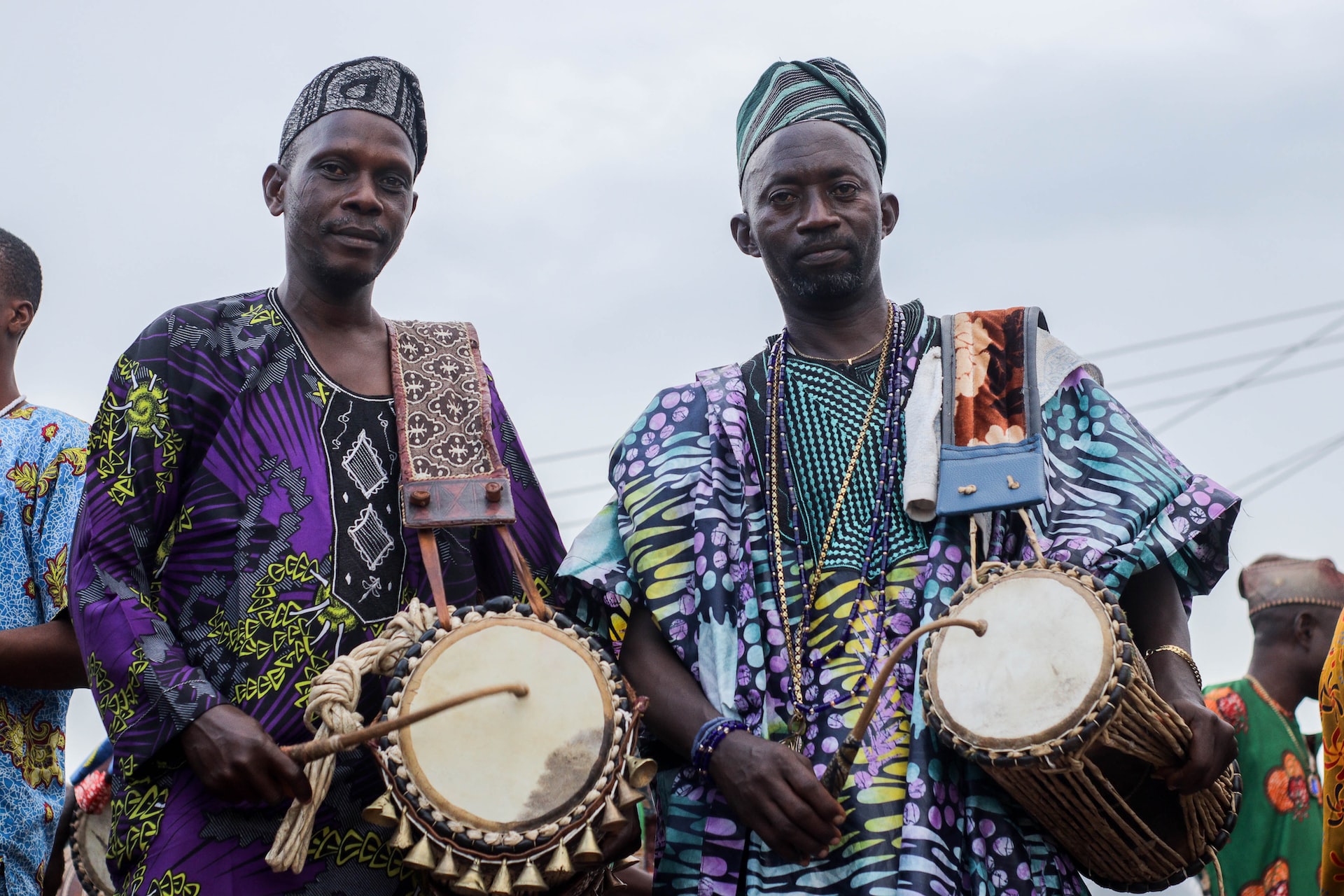Brief Introduction about the Yoruba People
The Yoruba people, originating from West Africa, primarily Nigeria, Benin, and Togo, boast a rich cultural heritage with a history spanning centuries. Their tradition of oral history forms the cornerstone of their early narrative, passed down through generations. According to these tales, their migration from the Middle East to West Africa occurred over 1,000 years […]
Learn Yoruba for Beginners – Lesson 13 : UNIT 0 Word List
Introduction The following table contains the words that I learned while writing the articles for UNIT 0. Also this can also serve as a reference for beginner level vocabulary. Vocabulary List Nr. Yoruba Word English Word Category 1 bàbá father, dad noun 2 ile-iwe school noun 3 iṣẹ́ work verb 4 mo I subject pronoun […]
Learn Yoruba for Beginners – Lesson 12 : Yoruba Alphabets & Pronunciation Guide
Introduction Alphabets According to my weak research, there are 25 characters/letters in the yoruba language ( please use the references below). Keep in mind that there are other letters/characters that are used but they are mostly pronounced exactly like in English. So I left them out here. Letter Tones English Equivalent A á,ā,à c(a)r, (a)h […]
Learn Yoruba for Beginners – Lesson 11 : Numbers in Yoruba ( 1 – 20)
Introduction Numbers in Yoruba For the pronunciation, please refer to this youtube video. Number Yoruba 1 oókan / ọ̀kan 2 eéjì / èjì 3 ẹẹ́ta / ẹ̀ta 4 ẹẹ́rin / ẹ̀rin 5 aárùnún / àrún 6 ẹẹ́fà / ẹ̀fà 7 eéje / èjè 8 ẹẹ́jọ / ẹ̀jọ 9 ẹẹ́sànán / ẹ̀sán 10 ẹẹ́wàá / ẹ̀wá […]
Learn Yoruba for Beginners – Lesson 10 : How to ask “how are you” in Yoruba
Introduction Do you want to know how to ask about someone’s state during a greeting ? Then this post is for you 🌞. Answer Báwo ni [Name] ? Possible Responses Mo wà dáadáa I am fine. Hope you enjoyed this very informal post. Please, every suggestion or correction is welcomed and appreciated. Thank you! […]
Learn Yoruba for Beginners – Lesson 9 : Negation in Yoruba
Introduction In today’s lesson, we will be learning about how to negate in the Yoruba language. By adding the word “kò” before the verb, one can negate the sentence. Please keep in mind that, if the pronouns she|he|it are used before the verb, they get removed when using the negative marker. Additionally, in the case […]
Learn Yoruba for Beginners – Lesson 8 : How to say “yes” and “no” in yoruba
Introduction Despite being fatigued, I really want to stick to my weekly yoruba learning goal. So today’s topic is going to be very simple and brief. How to express “yes” and “no” yoruba style. Make sure you reference the YouTube videos linked below for the pronunciations. Lesson Yes Òo Bẹ́ẹ̀ ni / Bẹẹ ni […]
Learn Yoruba for Beginners – Lesson 7 : Pronouns in Yoruba — Intensive pronoun
Introduction Hello everyone! This post’s focus is intensive pronouns. Some of these are myself, yourself, themselves etc. These types of pronouns emphasise the antecedent. In the Yoruba language, based on my very quick research, these pronouns are expressed in the following format : ara + subject pronoun If you want to know more about subject pronouns, […]
Learn Yoruba for Beginners – Lesson 6 : Pronouns in Yoruba — Possessive adjective (determiner)
Introduction In today’s article, we will be learning about possessive adjectives (determiner). Some of these are my, your, his, her, its, their etc. These are usually used to indicate possession and are placed before the noun in English but placed after the noun in Yoruba. Lesson My mi The format is as follows : [Noun] […]
Learn Yoruba for Beginners – Lesson 5 : Pronouns in Yoruba—Possessive pronoun
Introduction In this post, we will be briefly addressing possessive pronouns. Possessive pronouns like mine, yours, his, hers are useful to avoid repetition in your text. It replaces a noun that has a possessive pronoun (determiner). Let’s go. By the way, one thing I noticed after reading the book that is referenced below was that […]







